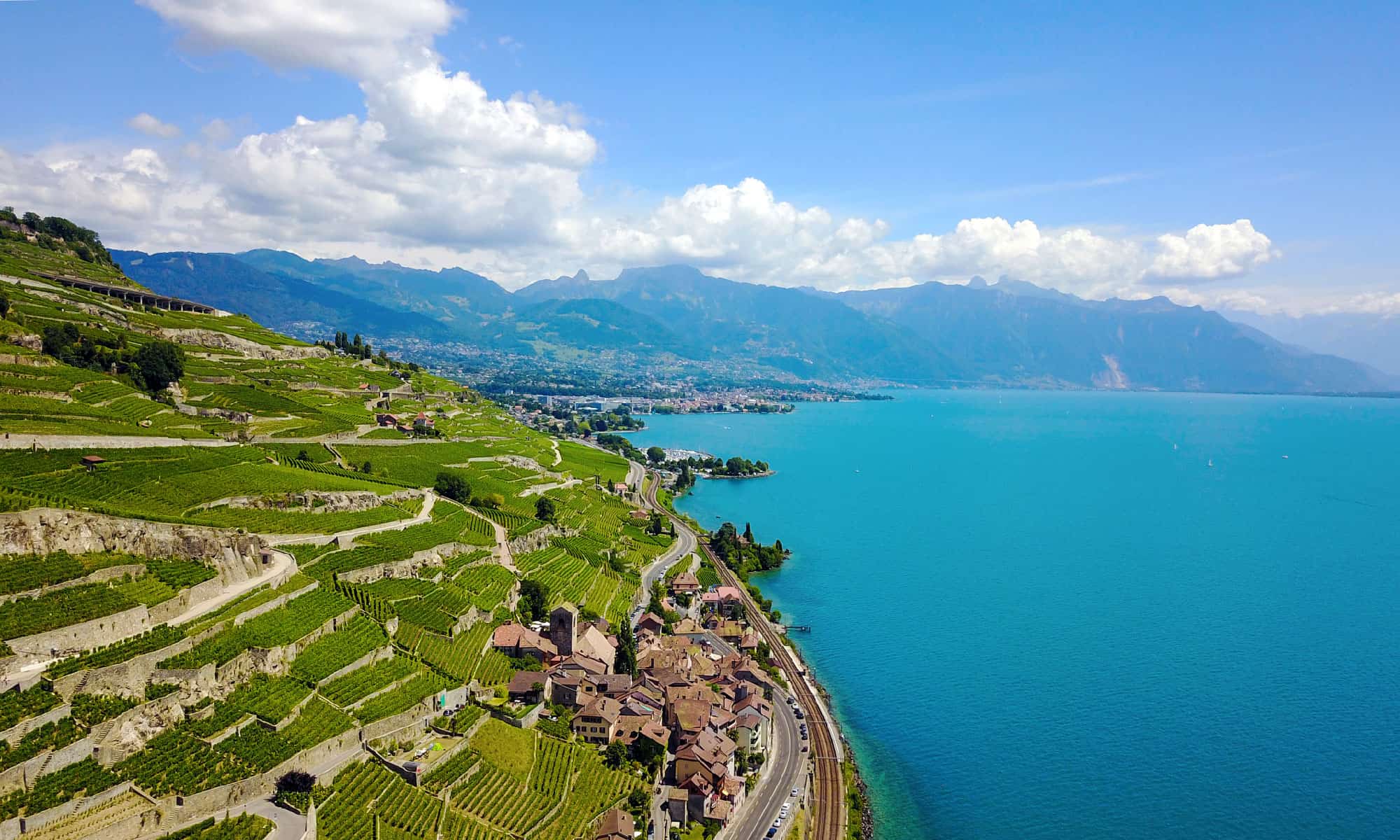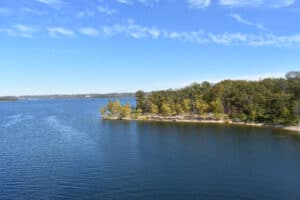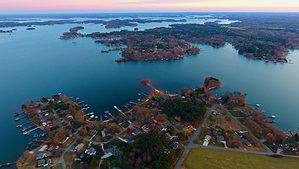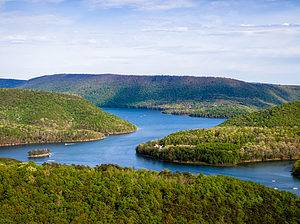Many Europeans don’t live by the beach and in fact, most capital cities aren’t next to a sea or a beach-type body of water. Usually, capital cities sit next to rivers. Many cities in Europe also have the prestige of sitting next to lakes. These lakes can act as mini beaches if the country is landlocked or the beach is far away.
Most lakes in Europe are amazing. The crystal clear waters, the cleanliness, the natural beauty surrounding the lakes, the activities you get to do — everything is amazing. Europe truly has gorgeous lakes. We’re going to go over 10 reasons why Europe has the best lakes in the world, diving into detail with several indicators.
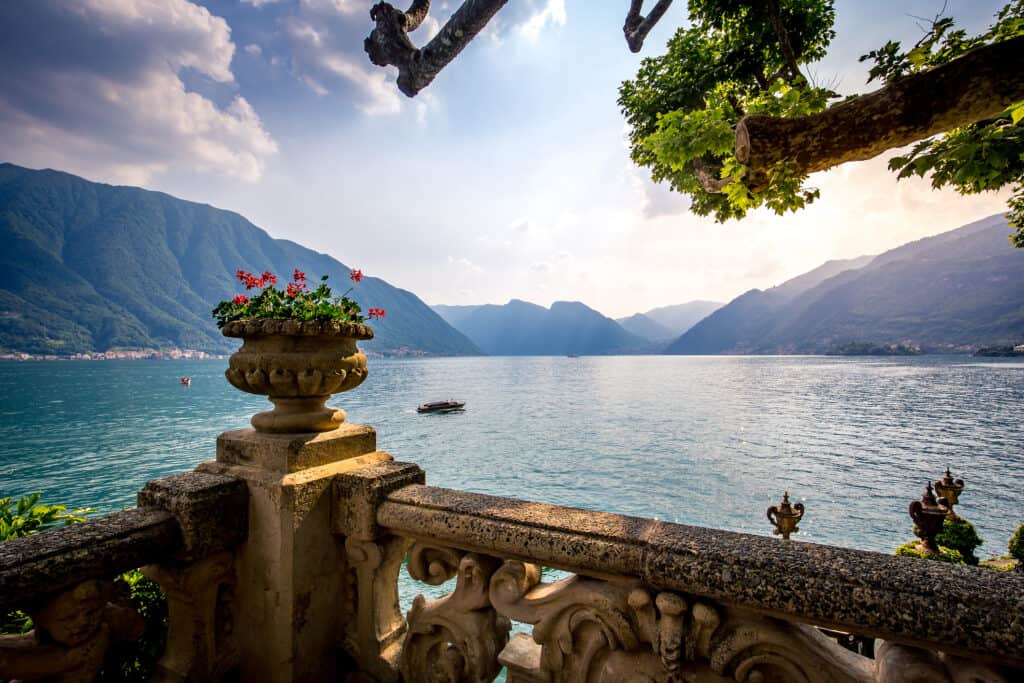
Lake Como, in Italy, is one of the most popular and visited lakes in Italy.
©iStock.com/Christine944
Natural Beauty
If there’s one thing European lakes have in common is how beautiful they are. Each one is absolutely stunning. Lake Hallstatt is one of the most picturesque lakes in the world. If you scroll through social media apps, you may even run into pictures of the lake and the eponymous village. The Dachstein Kast mountains are off in the distance providing you with a total postcard.
If you’re dreaming of a winter wonderland in Switzerland, the beauty of Lake Lucerne will do it for you. The snowy mountains in the distance, the village shops around the lake — you will no doubt have a glorious time.
Size and Depth
Europe’s lakes are of all shapes and sizes. Some are shallow, which allows you to frolic in lakes without the fear of going too deep. Other lakes are very deep and you can go scuba diving to see if you find some treasures at the bottom. Some deep lakes you can explore are Lake Hornindalsvatnet in Norway, which at 1,686 feet deep, is Europe’s deepest lake; Lake Como in Italy; and Lake Tinn in Norway.
Water Quality
There are about 50 countries located in Europe, with more than half a part of the European Union. In regards to lakes within the EU, the European Parliament has passed legislation ensuring water quality standards are above average. Many things can affect water quality — microplastics, sewage runoff, pollution, and more — and EU member states have successfully implemented high EU standards in 95% of water sites. Beaches are cleaner than lakes and rivers, but the bathing sites at lakes still had a nearly 80% excellent rate. The European Environment Agency created a report and found that only 1.5% of bathing sites had poor water quality.
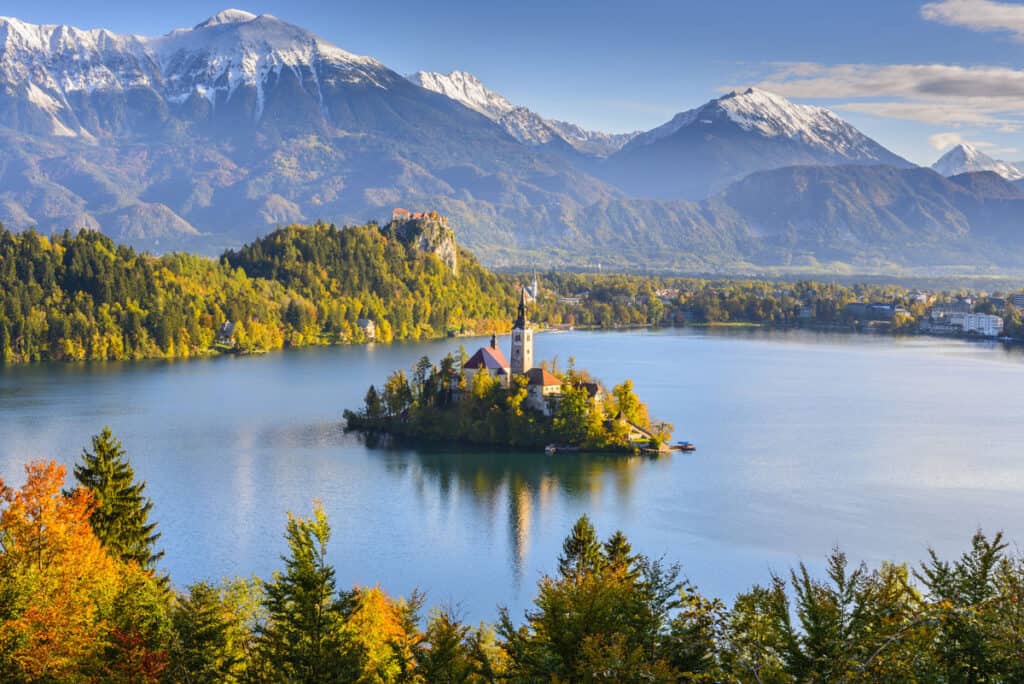
Lake Bled, in Slovenia, was built in 1004 by Emperor Henry II of the Holy Roman Empire.
©iStock.com/AlbertoLoyo
Biodiversity
European lakes and their surrounding areas offer you biodiverse wildlife. There is an abundance of species of plants and trees, as well as marine life living in the lake and animals roaming around the lake.
If you truly want to see biodiversity, go to Lake Ohrid, between Albania and North Macedonia, which is one of the oldest lakes in Europe. It is known for its hundreds of endemic species, as well as its diverse flora in and surrounding the lake.
Recreational Activities
Lakes can act as beach substitutes, attracting vacationers who enjoy beach-like activities. You can lie on the pebbles or sand if there is a place to do so. You can also play in the water, too. Different European lakes offer a wide variety of things to do.
If you’re in Lake Como in Italy, you can go windsurfing, sailing, jet skiing, or going on a fancy boat trip around the lake. If you want something more historical, you can head to Slovenia and Lake Bled. There you can take a gondola-type boat to the island in the center of the lake and tour the medieval castle on the island. Lastly, there are plenty of hiking and nature-oriented activities around the lake you can do, too.
Scenic Trails and Parks
The great part about lakes in Europe is that they’re easily located around places to hike or parks where you can enjoy a few days of solitude with nature. If you go to Lake Bled, you have trails leading to Triglav National Park from the lake. You can also head to Plitvice National Park in Croatia, which consists of 16 lakes and waterfalls connecting each of them. These lakes and waterfalls provide you with gorgeous views while you hike throughout the park. You can witness as the lakes change colors, the birds above swoop down to catch fish, and the insects play their calming music.
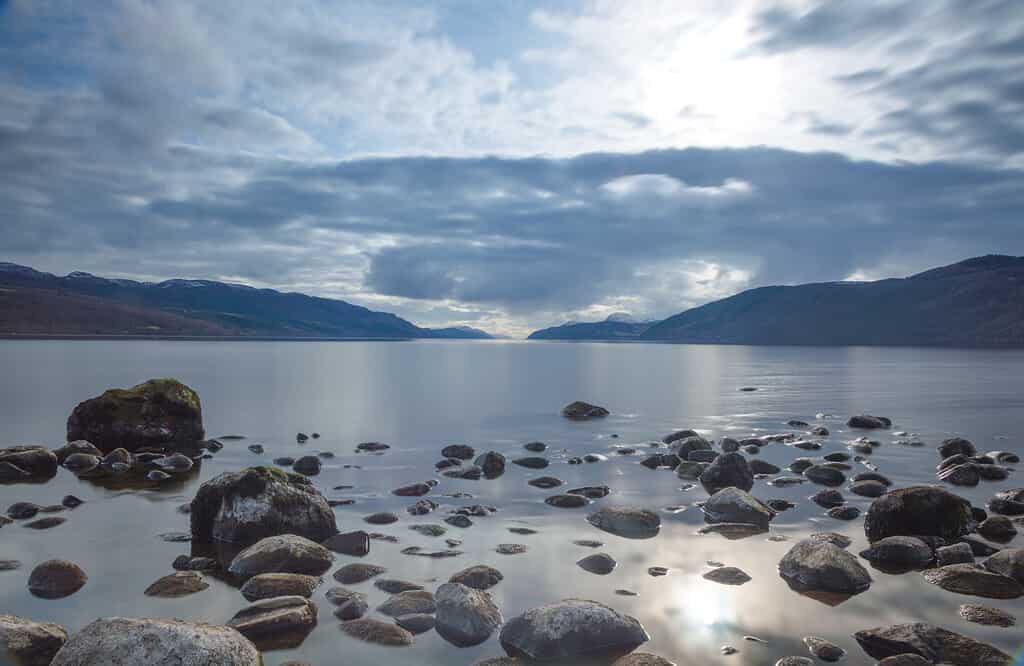
Loch Ness, in Scotland, is famous for its legend of the Loch Ness monster living in its depths.
©Luke Richardson/iStock via Getty Images
Fishing Opportunities
Lakes are full of diverse marine life. If laws allow, there are opportunities to fish for native species in European lakes. Seems like Lake Bled is popping up in every segment, but the reality is that Lake Bled has it all. It’s been a place for people to relax for a thousand years. When it comes to fishing, your best bet is finding marble trout in the water.
Accessibility and Amenities
Most of Europe is a collection of highly developed countries with roads leading everywhere. For those lakes not near a town or city, they are all still accessible. They all have the essential amenities you need to enjoy a day on the lake. Europe’s lakes are top-notch and each country’s government ensures everything is taken care of for visitors.
Cultural and Historical Significance
Many lakes in Europe have a historical significance to the towns nearby. The entire culture of the towns that relied on the lake for water and food is present hundreds or thousands of years later. For example, Lake Bled’s medieval castle on the island inside the lake was built by Emperor Henry II as a relaxation place.
Or take Lake Garda in Italy, where you can visit Scaligero Castle in town or even go to the several islands the lake has. One of them was used as a Roman burial ground, but now it’s a villa with gardens. In Ireland, if you go to Killarney National Park, you can see where monks lived in the ruins that used to serve as abbeys. Ross Castle is on the shore of Lough Leane and fascinating to go inside and see how people lived in medieval times.
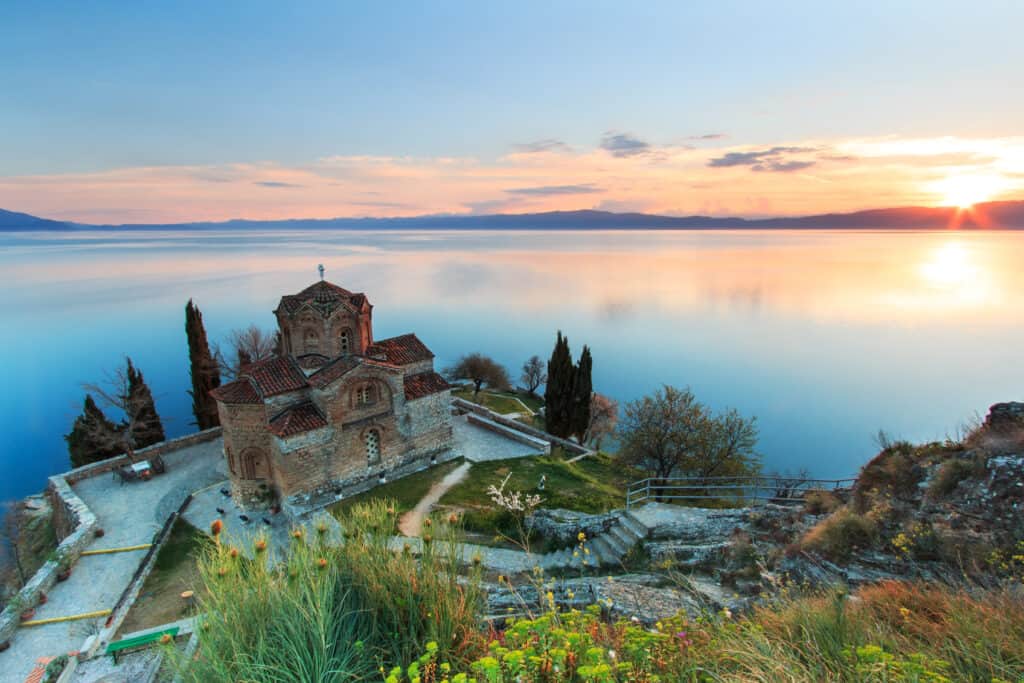
Lake Ohrid, between Albania and North Macedonia, is a UNESCO World Heritage site.
©iStock.com/outcast85
Community Engagement
Communities living around lakes throughout Europe know that taking care of the lake is important. The lake provides residents with so much and it’s essential to always give back. Another part of community engagement is ensuring events like cleanups, festivals, and concerts embed the lake as part of the culture. These events should be environmentally friendly, too. Lastly, community engagement means promoting the lake as part of a tourist destination. The economies of the cities and towns nearby thrive. Loch Ness, in Scotland, is a perfect example where a town thrives — in the form of spreading the word about a monster living in the depths of the lake — with community engagement and promotion.
Conclusion
And there you have it, European lakes are known for their cleanliness, their safety, and many more things like the fun activities you can do around their vicinity. The people living there take advantage of having a lake to enjoy lake life. For those going on holiday, especially lakes in the EU, you can have a fantastic time and not be worried about whether the water is going to be clean or not.
Lakes all over the world should strive to have the utmost environmental standards. Humans need to be more cognizant of taking care of their environment, especially lakes. We often litter without realizing it, or the government doesn’t have the necessary protocols when it comes to lakes, like Lake Geneva. For action to happen, we must pressure governments and corporations to do their part. Having environmentally-friendly lakes is good for the overall health of the world. The next time you go on holiday, check out the reviews and do your research to ensure the lake you’re visiting checks off your entire list. After all, you’re there to have a blast!
Thank you for reading! Have some feedback for us? Contact the AZ Animals editorial team.

